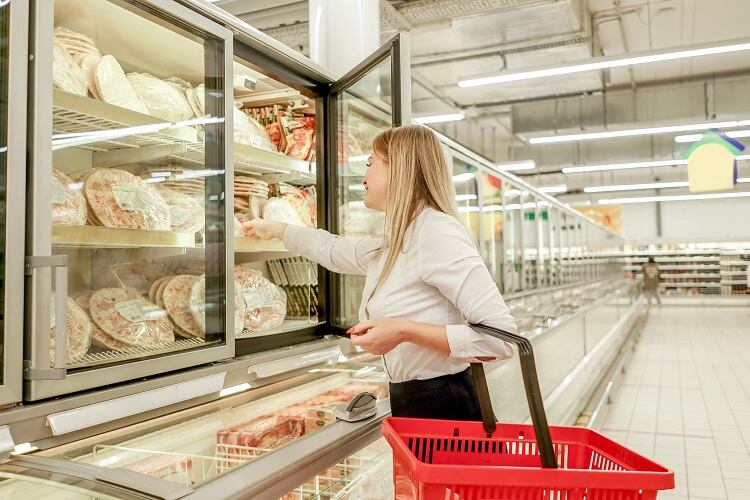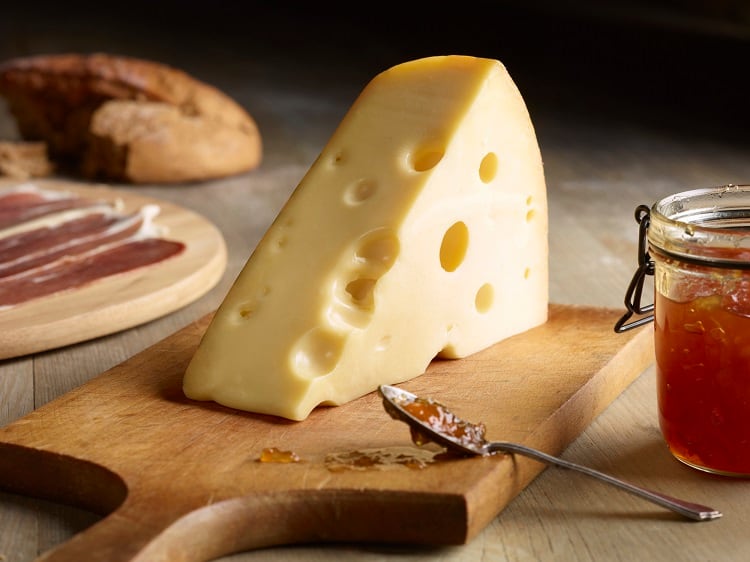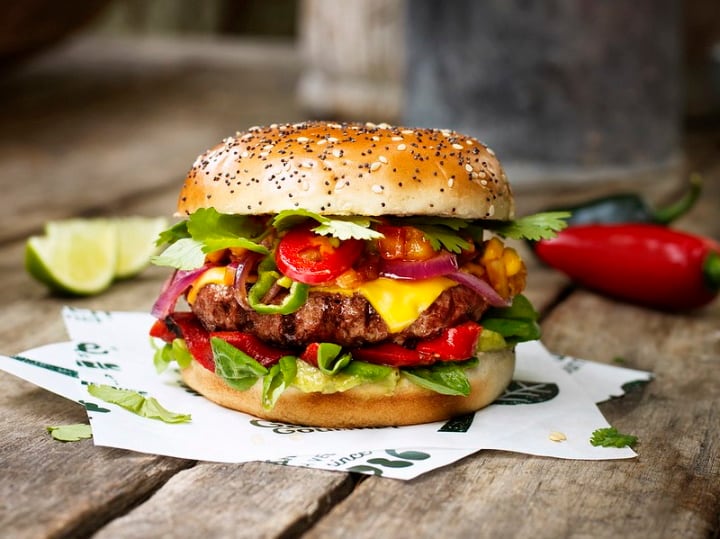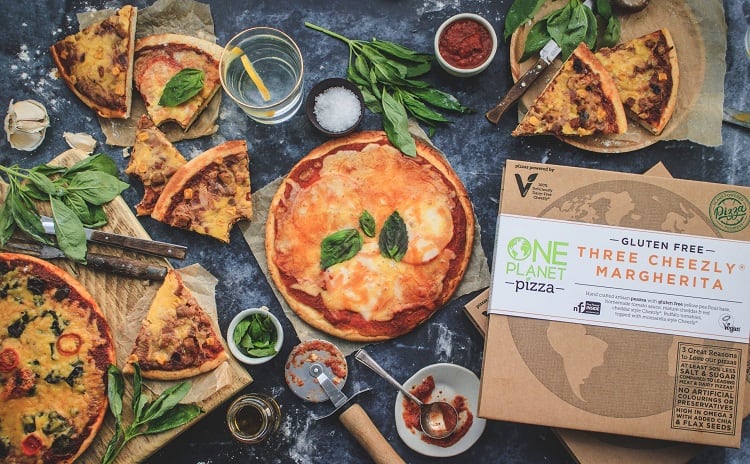Frozen pizza is a multi-billion-dollar industry. Globally, the market had an estimated size of $16.2bn back in 2020, with Statista estimating it to grow to $23.3bn by 2027.
As the frozen pizza market grows in popularity, consumer demands are changing. Today, shoppers are looking for ‘healthier’ products with a reduced fat, sugar and salt content.
In frozen pizza, cheese is the major driver of its saturated fat content. Dutch semi-hard cheese Edam is often used as a topping in the frozen pizza category, and fat-reduced Edam cheeses are available on the market.
However, according to food giant Nestlé, these fat-reduced offerings do not offer the characteristics needed for a high-quality pizza. Their crumbly texture prevents easy shredding, and when heated, they don’t melt smoothly. They ‘brown’ too much, are less aromatic, and have a dry mouthfeel.
In a bid to find a better-suited fat-reduced frozen pizza topping, Nestlé – which owns frozen pizza brands DiGiorno, California Pizza Kitchen, Tombstone and Jacks in the US, and Wagner and Buitoni in Europe – has partnered with contract research company NIZO in the Netherlands.
Project requirements
The aim of the collaboration was to develop a new, fat-reduced Edam cheese offering the sensory and functional characteristics required for frozen pizza.
The requirements for the new cheese were ‘strict’. It had to offer good shreddability and meltability, with low browning when heated.
At the same time, the new cheese had to align with the German Käse Verordnung regulations on cheese, which bans the use of certain additives and heat treatments.
Further, it had to be ‘easily transferable’ to Nestlé’s cheese suppliers, without requiring additional costs, ingredients or equipment.

“The primary requirement, however, was taste, of course, because in the end that was the most important factor for the consumer,” said Praveen Upreti, Corporate Cheese Advisor at Nestlé R&D.
“We began by focussing on raising the moisture-to-protein ratio of the fat-reduced cheese to that of full-fat cheese, and increasing proteolysis (the breakdown of the proteins),” explained Durita Allersma, Project Manager at NIZO Food Research.
“A full-fat Edam is about 23% fat in total weight, whereas a low-fat version is about 15% fat in total weight. In the latter, the fat is replaced by water and proteins.
“But the balance of these is critical. If you have too much protein, for instance, it can cause difficulty with texture and melting behaviour.”
‘A near-equivalent to full-fat Edam’
The collaboration was a success, according to Wim Engels, Senior Project Manager at NIZO. “We successfully developed a fat-reduced cheese-making process that increased the moisture/protein ratio to that of full-fat cheese.”
This improved not only melting behaviour, but also creaminess and shreddability. Using a relatively high dose of a high-proteolytic-activity rennet ‘further enhanced’ meltability, noted the project manager.
Concerning flavour, the partners identified a ‘mixed-strain, mesophilic’ culture which provided the best flavour, while at the same time supported the functional characteristics required for the frozen pizza application.
“Our results also showed that pre-ripening and homogenisation of a portion of the milk did not contribute to better melting or creaminess, eliminating the need for these steps in the production process,” continued Engels.

For Nestlé’s Upreti, the resulting fat-reduced cheese is a ‘near-equivalent’ to full-fat Edam.
The flavour is ‘essentially the same’, and the behaviour of the cheese allows the food major to deliver a pizza with less fat, without compromising on texture or visual presentation.
“Furthermore, the culture and rennet are both commercially available, and the entire process requires no unit operations that are not already available at the cheese production facilities,” said Upreti.
“We will be visiting our vendors to share this new process openly, and look forward to transitioning to the fat-reduced cheese for our pizza ranges in Europe.”




